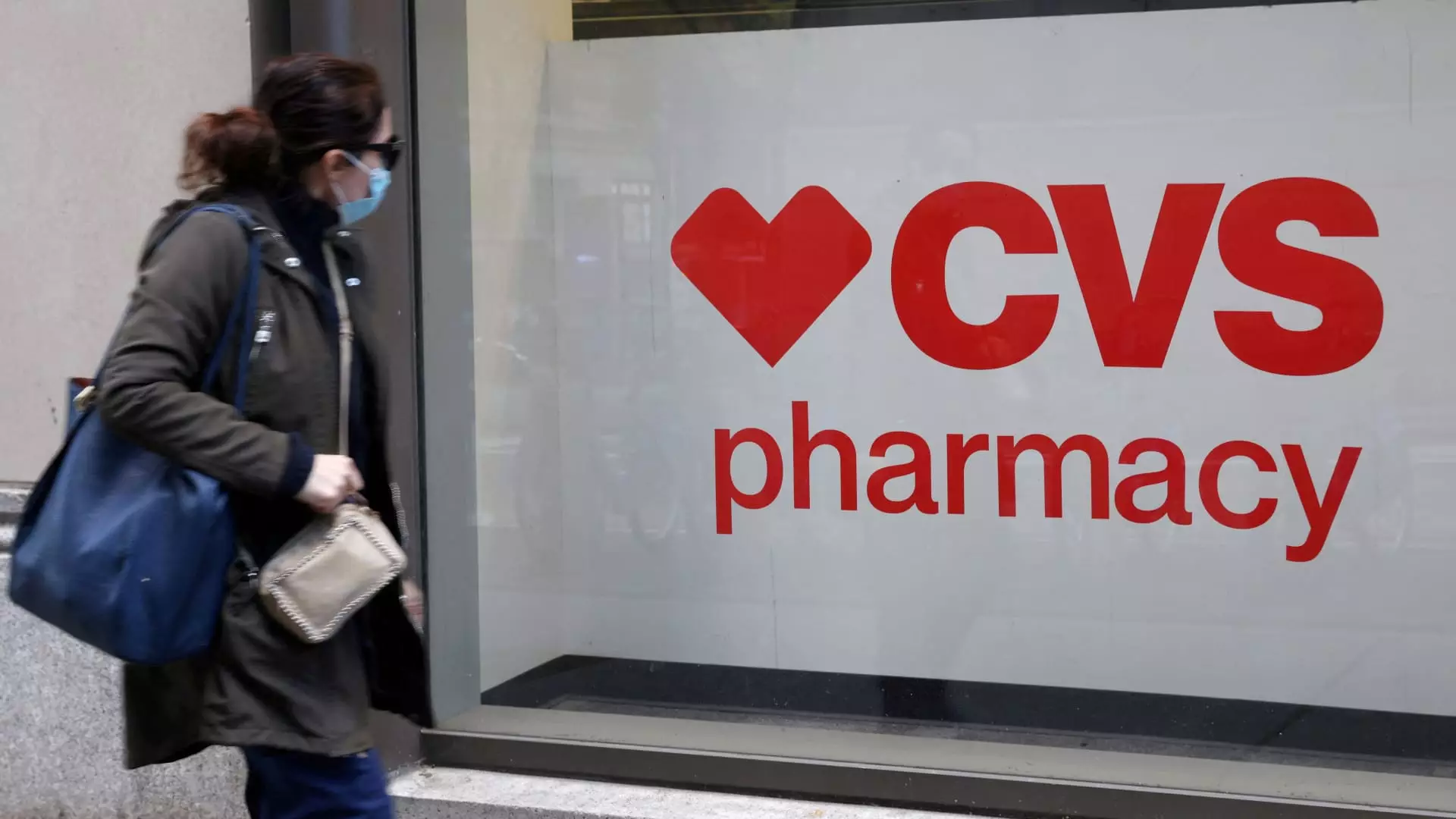CVS Health is currently navigating a turbulent period marked by financial difficulties and an evolving leadership structure. On Wednesday, the company released its third-quarter earnings report, revealing a complex picture of performance that has raised eyebrows among analysts and investors alike. Under the new leadership of CEO David Joyner, this report marks a pivotal moment for a company that has recently faced mounting pressures due to rising medical costs and operational inefficiencies.
The earnings report detailed by CVS indicates both challenges and opportunities, with figures revealing a significant divergence in expectations versus reality. Although revenue of $95.43 billion surpassed analyst projections of $92.75 billion, the adjusted earnings per share came in at $1.09, falling short of the anticipated $1.51. This discrepancy highlights underlying issues within the company’s financial framework, exacerbated by higher-than-expected costs in its health insurance unit, Aetna.
Compounding these challenges, CVS’s stock has experienced a downward trend, reflecting a nearly 27% decrease in value for the year. A significant factor driving this decline has been the higher medical costs associated with the resurgence of healthcare services as seniors, who postponed procedures during the COVID-19 pandemic, return for necessary treatments. Joyner acknowledged that CVS has felt the repercussions more acutely compared to industry peers, signaling a need for immediate stabilization efforts.
In the wake of the report, the company emphasized its commitment to restoring investor confidence. Joyner, as the new CEO, articulated his priorities, notably the need to establish credibility through achievable guidance and transparent communication. The selection of Steve Nelson, the former CEO of UnitedHealthcare, as President of Aetna indicates CVS’s strategy to leverage experienced leadership to rectify its operational deficits.
Joyner’s acknowledgment of investor skepticism underscores the pressing need for CVS to reassure stakeholders that it is on the right trajectory. The company’s recent changes, including the downsizing of its workforce and the closure of numerous retail locations, suggest that it is serious about addressing inefficiencies and streamlining operations. This restructuring strategy, however, comes with its own set of challenges, as layoffs and closures can affect morale and public perception.
Diving deeper into the financial landscape, CVS reported a net income of $71 million, starkly contrasting with $2.27 billion in the same quarter last year. This drastic decline reflects the pressures of the elevated medical costs, which are expected to persist, resulting in no formal earnings guidance for the near future. The company also noted a substantial restructuring charge that impacted profits significantly; $1.17 billion was attributed to various strategic changes, including upcoming store closures in 2025 and associated layoffs.
Notably, the insurance division’s medical benefit ratio showed a sharp increase, underscoring the rising costs that have outpaced premium collections. With Aetna’s revenue climbing to $33 billion, the adjusted operating loss of $924 million raises concerns about the sustainability of growth in that sector amid escalating expenses. Such figures signal an urgent need for CVS to reassess its operational paradigms and profitability strategies.
As CVS attempts to chart a course toward recovery, it faces the dual challenge of managing costs while maintaining a competitive edge in the retail pharmacy market. Joyner’s statements regarding CVS’s 27.3% market share indicate the company’s dominance, but increased competition coupled with downward pressures on reimbursement rates could threaten this position.
The upcoming earnings call provides a platform for CVS’s leadership to outline its strategic vision moving forward. Investors will be keenly watching for indicators of effective cost management, service optimization, and overall operational stability. Joyner’s commitment to transparency and strategic execution will be essential for rebuilding investor confidence and ensuring CVS’s long-term success.
The third-quarter results for CVS Health paint a picture of a company at a crossroads, grappling with the ramifications of increased medical costs and the need for a robust operational overhaul. As a new leader, Joyner’s ability to navigate these turbulent waters and implement effective strategies will be pivotal for CVS’s future. With a focus on credibility, investor relations, and financial stability, the company has an opportunity to emerge stronger, all while facing the pressing realities of an evolving healthcare landscape.

